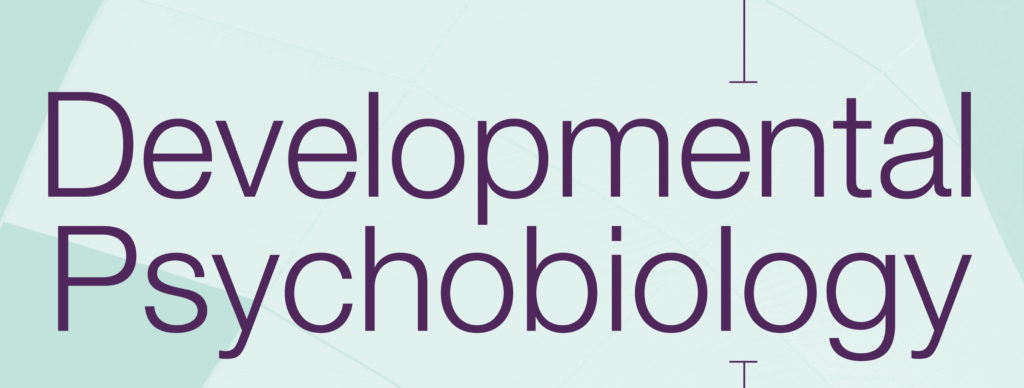This is an open call for submissions for a special issue of Developmental Psychobiology on Methods and Metrics for EEG/ERP Assessment of Emotion and Cognition in Young Children. This special issue will be guest-edited by Dr. Rebecca Brooker (Texas A&M University) and Dr. Autumn Kujawa (Vanderbilt University).
Electroencephalography (EEG) and event-related potential (ERP) methods are well-suited to inform understanding of the development of emotion and cognition beyond what can be gained from subjective and behavioral measures. In recent years, use of EEG/ERP measures in infancy and early childhood has expanded, with many innovative and exciting applications. Yet, most standard protocols, methods, and research on psychometrics is based on adult research, and the extent to which these methods reflect best practices in early childhood remain unclear. Little empirical work has addressed considerations for task design, psychometric properties, or processing/analysis of EEG/ERP data with young children. Noting the need for validated developmental paradigms that can be used to reliably elicit EEG or ERP measures in research with infants and young children, we invite submissions that will aid in the development of best practices and standards for EEG and ERP research in this critical development period. We are interested in research that validates novel paradigms for EEG or ERP elicitation and/or the downward extension of adult paradigms to infant and/or child populations. Research examining methods for reliably engaging young children and capturing attention in emotion and cognition paradigms would be particularly relevant to this special issue. We are also particularly interested in papers that examine psychometric properties of EEG measures (e.g., alpha asymmetry, coupling, etc.) or ERPs in child populations, including cross-context stability, the number of trials needed to create stable estimates, internal consistency within or across developmental stages, and/or longitudinal examinations of properties, including psychometrics, over time. Evidence of low reliability of commonly used neural measures and paradigms would also be of interest. As we intend for the special issue to be a resource for the future conduct of high-quality EEG and ERP work with children, authors should plan to make their paradigms and stimuli publicly available through an online open-access platform.
We welcome research articles, brief reports, and review papers addressing EEG/ERP methods across development. We welcome submissions using new or previously-collected data. Interested authors should submit an abstract that includes a tentative title for the work, a brief description (300 words or less), the perceived overlap of the submission with the aims of the special issue, and a statement of the materials that will be made publicly available upon publication. Abstracts will be evaluated by the special issue guest editors.
Abstracts are due by October 1, 2020; authors will be notified by November 1, 2020 regarding invitations for a full submission. Invited manuscripts will be due by February 1, 2021. Publication date is planned for late 2021/early 2022.
Submit abstracts to the Developmental Psychobiology Editorial Office at [email protected] by October 1, 2020.
Send questions about the special issue to Dr. Rebecca Brooker ([email protected]) and Dr. Autumn Kujawa ([email protected])

